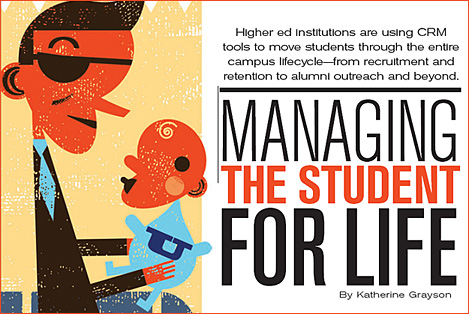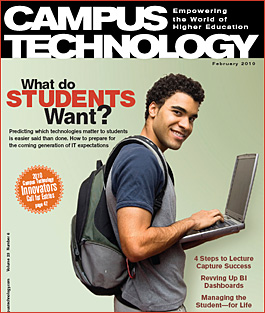From Campus Technology’s latest edition — quote below from Geoff Fletcher, Editorial Director
Per Geoff: Innovation is in. Innovation has always been in, but it really is in these days: According to economists, innovation will be America’s [or substitute any nation — per DSC] hedge in an increasingly-competitive global economy, but only if our education system is good enough — is innovative enough — to foster the same creativity and inventiveness in our students.
Per DSC:
Wow…do we have our work cut out for us. From so many of the articles and postings I’ve seen over the last few years, innovation and change comes hard to those of us in the world of education. Are we giving the students the chances to be innovative and creative? Are we encouraging those traits in them? If not, what will it take to turn the tides here?
Also, I’d like to comment on students’ expectations — in that we should not underrate them! (Particularly in light of the higher costs of obtaining an education and the movement towards a more consumer-based mindset of our students.) I wonder how long will it be before prospective students take a good, long, hard look at what assistance/training/education an institution of higher education will offer them in developing their learning networks? What technologies does that institution support? What philosophies does that school have concerning how open to be here? Hmmm…
Finally, this edition sports a great article (starting on page 23) entitled, “Managing the Student for Life” — I’ve often thought that more colleges and universities should focus more heavily on lifelong learning possibilities, and then to market themselves as being able to assist a person from age 18 – until “death-do-we-part”. 🙂












